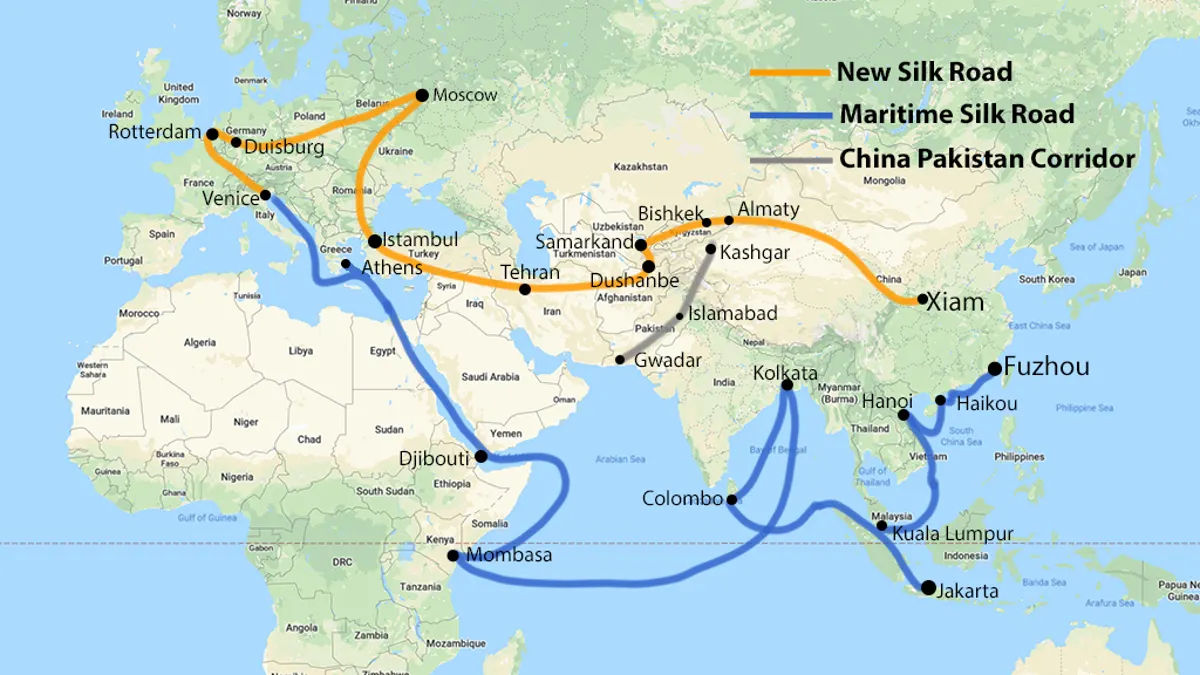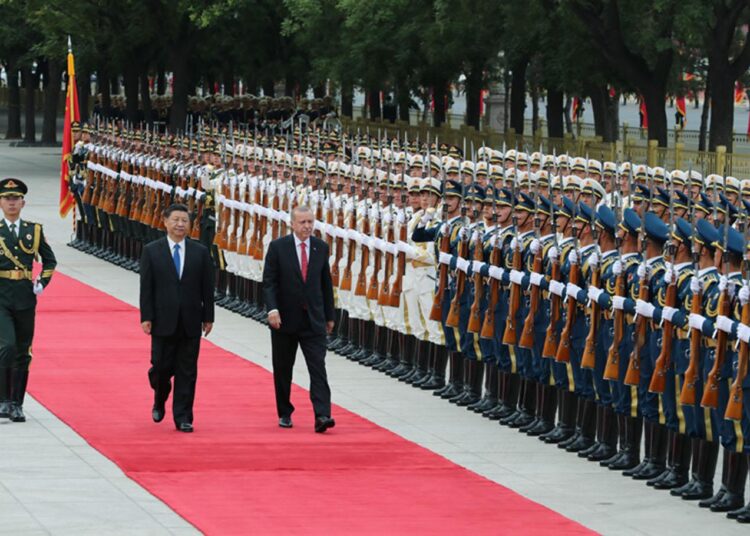Levent Kenez/Stockholm
A recent report by Turkey’s National Intelligence Academy analyzes China’s growing influence and its potential impact on Ankara’s foreign policy. Emphasizing the need for a pragmatic approach, the report advises Turkey to navigate its ties with both Washington and Beijing while protecting its national interests. It also cautions Turkey to recognize the limitations of China’s power, noting that a weakening Chinese economy could present opportunities for Turkey within its regional context.
The National Intelligence Academy, established within intelligence agency Milli İstihbarat Teşkilatı (MİT) in 2024, is an institution of higher education focused on intelligence and security research. It brings together academics, many with ties to the ruling party’s think tank, the Foundation for Political, Economic and Social Research (SETA), and Its work closely aligns with government policies. MİT has increasingly adopted a role resembling that of a political party branch rather than functioning solely as a state institution serving President Recep Tayyip Erdogan.
Published on February 21, the report highlights China’s efforts to expand its influence through the Belt and Road Initiative (BRI) and other diplomatic ventures, though its effectiveness in shaping global politics remains contested. It cites China’s mediation in conflicts such as Saudi-Iran rapprochement and its stance during the Gaza war, where it positioned itself in favor of Palestine. However, it argues that these moves are largely situational and do not indicate a long-term commitment to regional stability.
“This means that Turkey, particularly in Africa, Central Asia and the Middle East, must construct its strategy on the assumption that China’s alternative narrative does not have practical sustainability,” the report states.
China’s growing presence in Central Asia is identified as a key area where Turkey needs to remain vigilant. Beijing’s increasing economic investments have raised concerns that it may seek to dominate strategic trade routes, an area where Turkey has historically enjoyed cultural and political influence. The report suggests that Turkey should proactively engage with regional partners to counterbalance China’s economic penetration.
It also details human rights violations against the Uyghurs, a Turkic ethnic group recognized as the titular nationality in the Xinjiang Uyghur Autonomous Region in Northwest China, referring to the Uyghur issue as a source of a crisis of trust in Turkey-China relations. However, it suggests that the issue could become manageable through a “rational balance policy,” moving beyond the dilemma of cooperation and competition.

As a NATO member with growing economic ties to China, Turkey faces a complex geopolitical equation. While China has become one of Turkey’s leading trade partners, the trade imbalance remains a significant concern. In 2023, Turkey’s trade deficit with China exceeded $30 billion, underscoring the need for more equitable trade agreements.
Meanwhile, the US remains a key military ally, with Turkey’s defense industry heavily reliant on Western technology and cooperation. As tensions between Washington and Beijing escalate, Ankara may face mounting pressure to align with one side or the other. Such a scenario could lead to significant disruptions in global supply chains, directly impacting Turkey’s economic ties with China. “However, Russia’s intervention in Ukraine has demonstrated Ankara’s ability to maintain strategic autonomy and effectively balance its position,” the report claims.
The report also identifies the transformation of the international system, driven largely by the US-China rivalry, as Turkey’s most significant challenge. Since the end of the Cold War, Turkey’s geopolitical alignment has been based on a US-led unipolar order. However, as China emerges as a revisionist power, this structure is undergoing a fundamental shift. In this context China represents both a disruptive force and a potential opportunity. If the US gradually reduces its security role in the Middle East, Turkey may face new geopolitical risks. Similarly, China’s growing economic and energy interests in the Middle East and Africa could put it in direct competition with Turkey, limiting Ankara’s ability to expand its influence in these regions.
The report suggests that China’s efforts to reshape the global system will likely result in a multipolar world, where Beijing’s ability to form long-term strategic alliances remains uncertain. While China and Russia maintain a pragmatic partnership, their relationship lacks the structural depth needed for a lasting alliance. This, in turn, creates an opportunity for Turkey to leverage its diplomatic flexibility and historical expertise in balancing great power politics.
It also warns that an escalation of the US-China rivalry into a full-scale ideological and security conflict could create new geopolitical fractures. Should an anti-American bloc emerge, including countries such as Russia and Iran, Turkey could face increased instability along its borders, leading to heightened risks of migration, terrorism and regional insecurity.
While China aspires to lead the Global South, its ability to present a viable alternative to Western-dominated institutions remains questionable. The report again asserts that Turkey must develop a strategy based on the assumption that China’s influence in Africa, Central Asia and the Middle East will remain limited in practical terms.
Text of Turkey’s National Intelligence Academy report on China:
The report also examines potential military confrontations between the US and China, particularly over Taiwan. In such a scenario, Turkey would have to assess two key outcomes: a direct US military intervention against China, or a more limited conflict similar to the US response to Russia’s invasion of Ukraine.
A direct confrontation between the US and China would disrupt global supply chains and directly impact Turkey’s trade relations with both countries. Given China’s significant role in global production networks, an economic decoupling scenario would necessitate Turkey diversifying its supply chains and strengthening its own manufacturing capabilities.
If China were to invade Taiwan without direct US intervention, Beijing might face economic sanctions and international isolation, creating further uncertainty in global markets.
The report suggests that a weakening China economically could present an opportunity for Turkey within its own regional context. In particular, over the more than 20-year period since China’s accession to the WTO in 2001, China has emerged as a strong competitor in markets and industries where Turkey has been active, leading to a significant decrease in Turkey’s market share across many sectors. In this context Turkey should focus more on its connectivity within its peripheral areas and, while doing so, increase its production capacity, especially in strategic sectors.
The report concludes that Turkey’s ability to adapt to shifting global conditions will determine its long-term geopolitical standing. It advises Ankara to closely monitor China’s regional ambitions, economic expansion and strategic decisions in real time, ensuring that Turkey remains an agile actor in an increasingly volatile international system.












